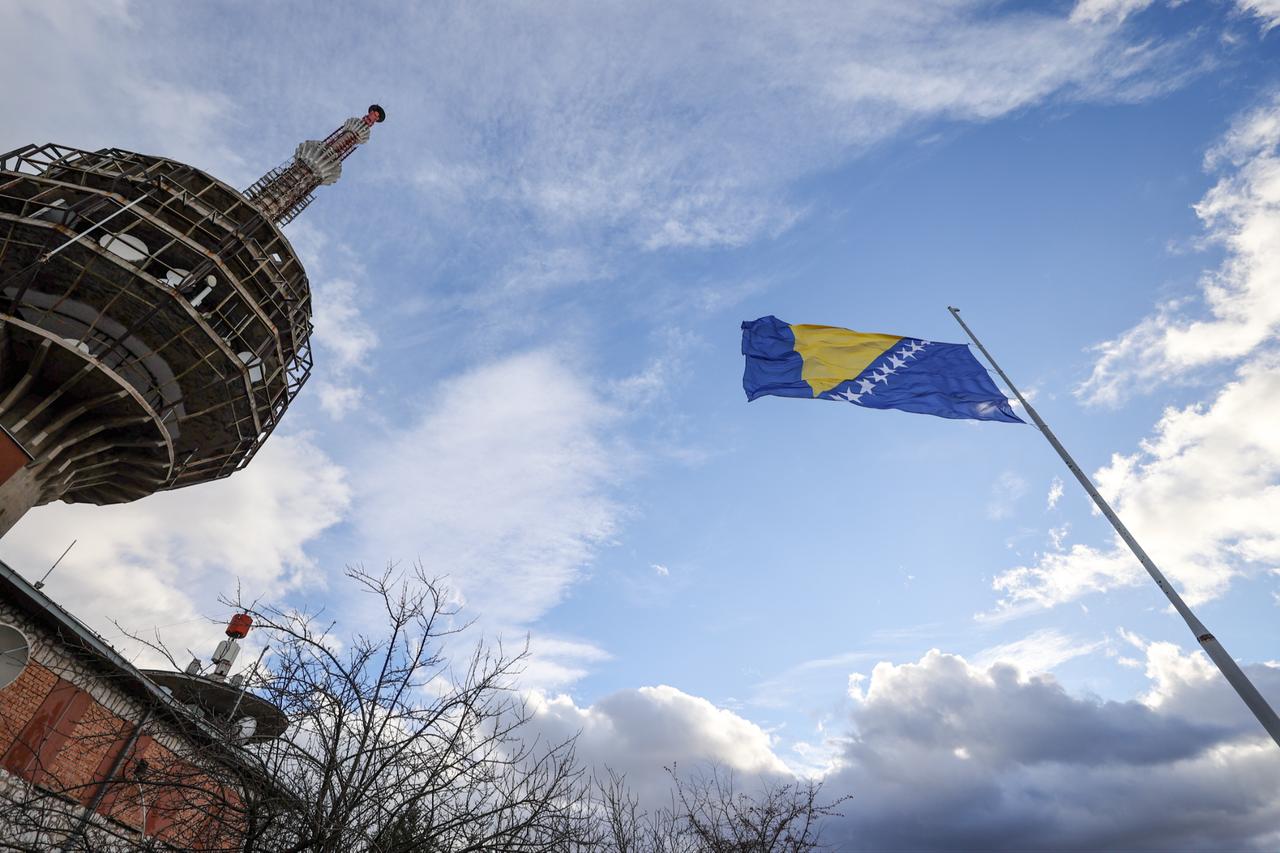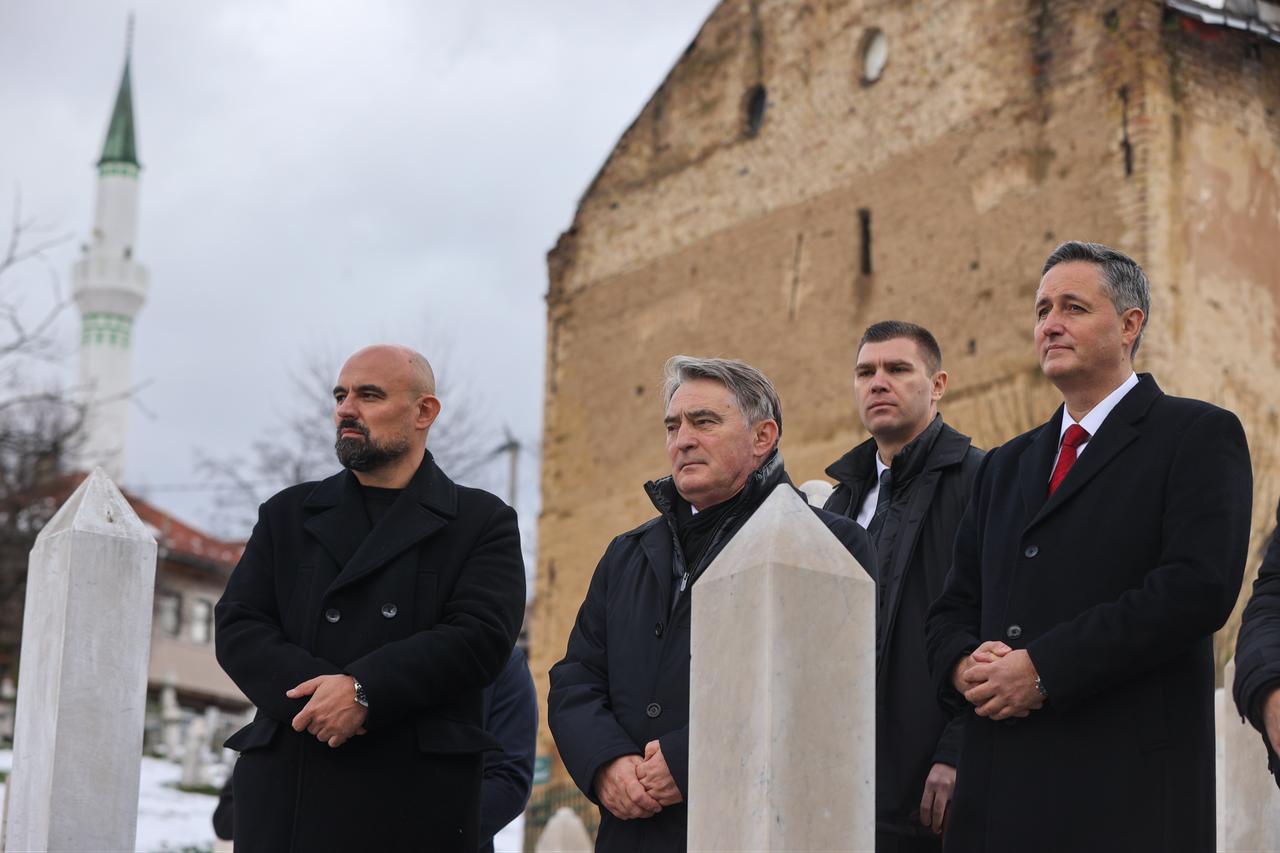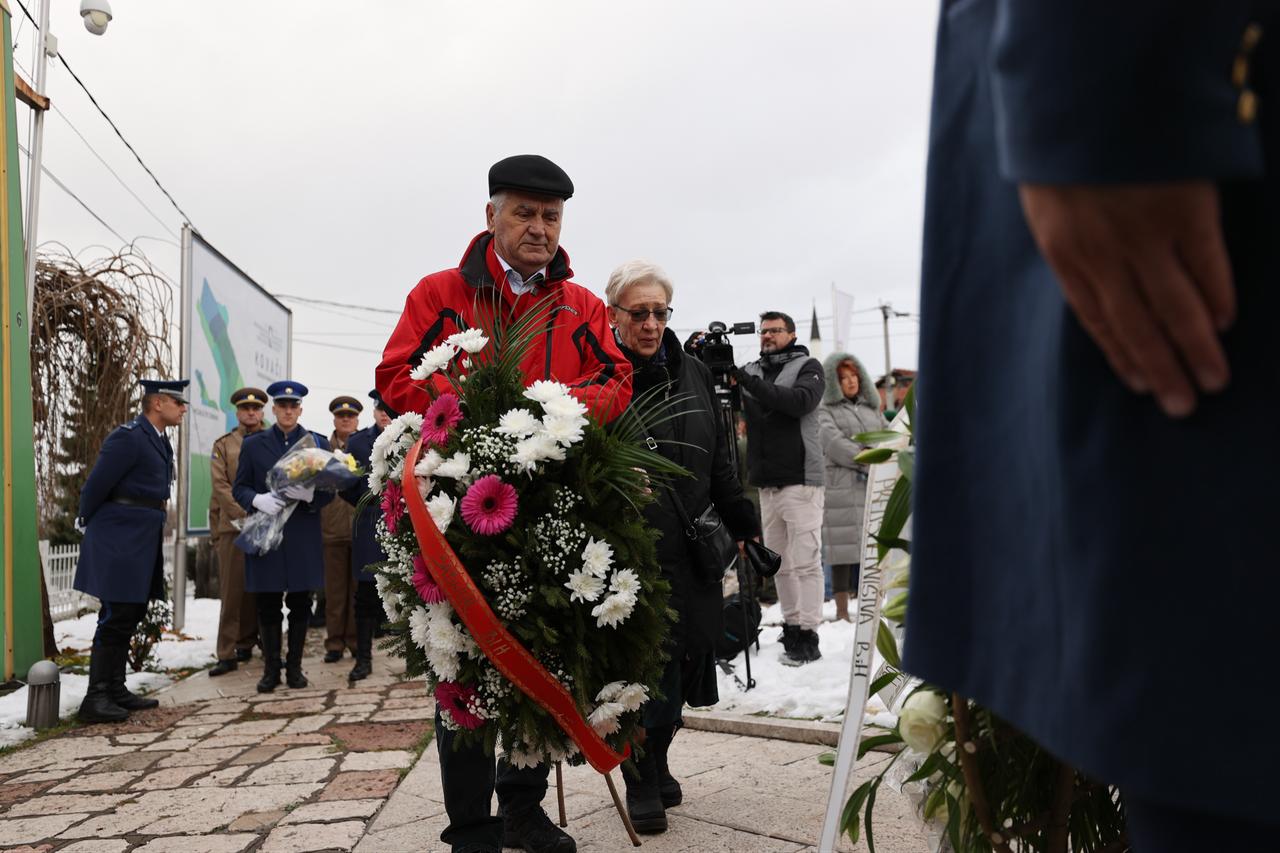
Bosnia and Herzegovina marked the 82nd anniversary of its Statehood Day on Tuesday with a series of official ceremonies in the capital, Sarajevo.
The day commemorates the historic first session of the National Anti-Fascist Council for the Liberation of Bosnia and Herzegovina (ZAVNOBiH), held on November 25, 1943, in Mrkonjic Grad, which laid the foundations for the country’s modern statehood.

The commemorations began on Hum Hill with the ceremonial raising of the Bosnian flag, followed by events at the Eternal Flame Monument and Kovaci Martyrs’ Cemetery. Members of the Bosnia and Herzegovina Presidency, including Zeljko Komsic and member Denis Becirovic, attended the ceremonies alongside government officials, local authorities and citizens.
At Kovaci Cemetery, participants paid tribute to Alija Izetbegovic, the first president of independent Bosnia and Herzegovina, laying flowers and offering prayers. A formal reception was also held at the historic Vijecnica Library, underscoring the cultural and symbolic significance of the day.

In remarks to the press, Presidency Chairman Zeljko Komsic highlighted the country’s resilience, stating: “Bosnia and Herzegovina has proven that it has been an unbreakable state for a thousand years.” Denis Becirovic emphasized the enduring importance of the 1943 ZAVNOBiH session, which declared Bosnia and Herzegovina as a homeland for all three constituent peoples Bosniaks, Serbs and Croats equally and affirmed the preservation of its historical borders.
While Statehood Day is celebrated nationwide, it is not officially recognized as a public holiday in Republika Srpska.
Meanwhile, Bosnia and Herzegovina celebrated Statehood Day amid early elections in the Serb majority entity of Republika Srpska, where the campaign period had been marked by reports of hate-laced rhetoric. Sinisa Karan, a close ally and chosen successor of former President Milorad Dodik, won snap presidential elections following Dodik’s removal from office over his separatist policies.